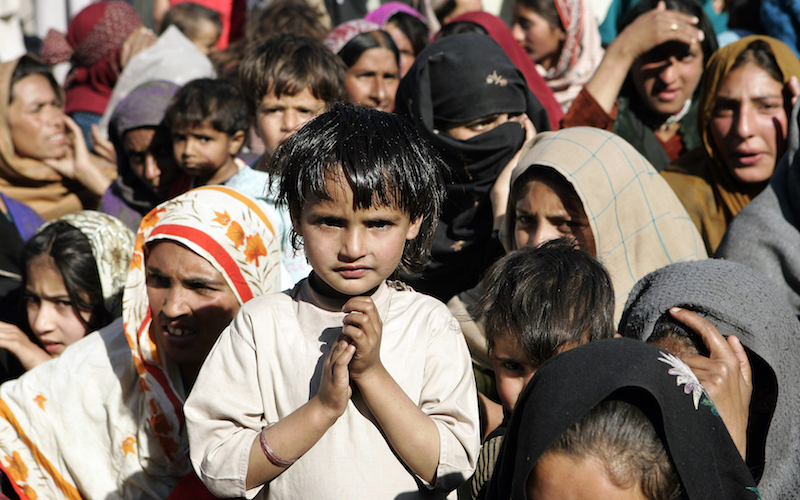
Kashmir Will Never Be Settled
Once again, talks between India and Pakistan failed to materialize for the same reasons as they have in the past. Just before the talks, Pakistan’s high commissioner to New Delhi invited various leaders to a meeting with Sartaj Aziz. India objected for the same reasons as last year. In the fall of 2014, just before the foreign secretary level meeting between India and Pakistan, Abdul Basit, the Pakistani high commissioner in New Delhi, met with the Hurriyat leader for “consultation.” As a reaction to that meeting, the Indian government cancelled a scheduled diplomatic meeting and the end result was no formal handshake between Modi and Sharif during the UN General Assembly in New York.
Again in March 2015 the Pakistani High Commission in New Delhi invited Kashmiri separatists who denounce India’s stand on Kashmir. The Pakistani High Commission also invited representatives of the new BJP government, which staunchly believes that separatist organizations such as APHC have no stake in the Kashmir peace process, to share the same stage with Hurriyat leaders. These events neither create a positive environment for the peace process nor a pleasant scenario for the newly elected BJP government that promised to take a firm stance against Pakistan’s un-neighborly activities during its election campaign.
As one of the oldest political issues in South Asia, Kashmir has grabbed the attention of countless think tanks and scholars for decades and hundreds of soldiers have lost their lives in wars between India and Pakistan. But there is no sign of progress towards permanent peace in Kashmir.
Successive governments in New Delhi claims all of Kashmir, including Pakistan Occupied Kashmir (POK), as an integral part of India and Pakistan avers that Kashmir is Pakistan’s “unfinished agenda” and it is an inseparable part of Pakistan. In pursuit of its unfinished agenda, Pakistan’s military and intelligence agencies fuel the proxy war to exhaust Indian security forces and Pakistani diplomats in New Delhi engage in futile activities in order to distress the Indian government.
Historically, India strongly believed that Kashmir is a bilateral issue and it should be resolved by negotiations only between India and Pakistan. The United States also supports bilateral discussions between India and Pakistan to resolve the Kashmir issue. India questions Pakistan’s efforts to involve APHC (All Party Hurriyat Conference) leaders in the peace process over the Kashmir issue because APHC leaders do not represent the people of Kashmir. In concurrence with the government of India’s position on APCH, the people of Kashmir have repeatedly ignored APHC’s call to boycott elections and have overwhelmingly participated in every election including the last state assembly elections in the Indian state of Jammu and Kashmir.
The Kashmir issue was viable some sixty years ago, but today it is a source for sustaining Kashmiri separatists, Pakistani politicians, the military and the Inter-Service Intelligence (ISI).
The partition of British India was based on the demand for a separate nation for India’s Muslims and the primary argument for the separate nation was the insecurity of Indian Muslims in Hindu majority India. This argument has completely lost its substance in recent years. Today, the matter of concern is the safety and security of Muslim minorities within the Muslim majority Pakistan. Pakistan’s claim on Kashmir is suspect because of Pakistan’s inability and likely disinclination to protect Muslim and non-Muslim minorities in Pakistan against violence. It is difficult to imagine Kashmir, which is also the land of Shia Muslims, Hindus and Buddhists, as a part of Pakistan.
Violence against minorities has been the norm in Pakistan for many years. Many Pakistani politicians and officials have publicly admitted that Pakistan itself is the victim of violence and terrorism. Some severe incidents such as an assassination of Benazir Bhutto in Rawalpindi, the deadly attack on Malala Yousufzai in the Swat Valley and the killing of 141 school children in Peshawar confirms this. Violence exists throughout Pakistan, and the government is unable to protect its people.
Perhaps Pakistani authorities could use U. S. financial assistance to improve law and order within its existing territories instead of seeking more land. Spending its resources on the proxy war against India has failed to affect India’s economic growth, cultural and democratic structure, and policy on Kashmir for more than sixty years. Pakistan should be content with Pakistan Occupied Kashmir (POK) instead of claiming all of Kashmir. On the other hand, India should also reevaluate its stand on the claim over the “entire Kashmir” and accept the present line of control (LOC) as an international border and allow Pakistan’s sovereignty over POK in the interest of all Kashmiries.
On the humanitarian side, every Kashmiri must be given a onetime option to decide where she/he wants to live as in 1947. People presently living in POK must be given an opportunity to migrate permanently to Indian Kashmir and people presently living in Indian Kashmir should have the opportunity to migrate to POK. After all, the purpose is to let every Kashmiri decide where he wants to peacefully live.

